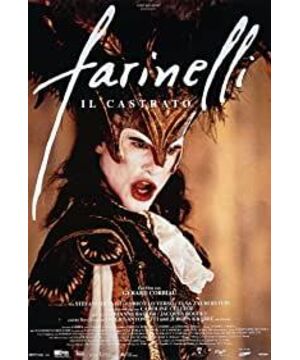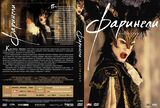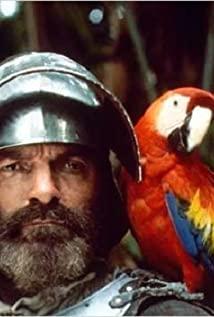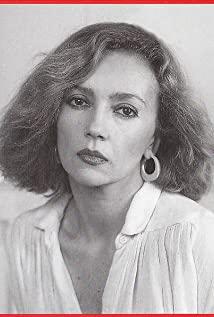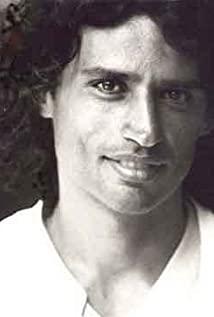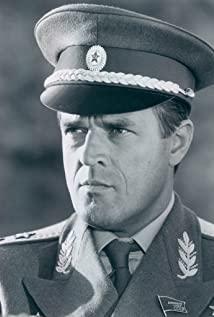Farinelli
director Gerard Corbiau's works usually have a bizarre duality. On the one hand, it is a joke that adds to the emotions of the characters. Those overt or dark loves have become the driving force behind history. At the point of the toes, his shots have become surprisingly classical, with a solemnity that cannot be desecrated.
1994's "Farinelli" has a vulgar translation, "Peerless Enchantress", such as sweet and greasy chocolate, with a heart of peach kernels, you don't know that you eat them one by one for the narcotic taste. The sweetness, or the bitterness. From the plot point of view, "Peerless Enchantress" is suitable for any popular "Erotic Movie Collection": in order to preserve his younger brother's voice, Cardo sent him to castration while he was sick, little Farene Leigh sat in the milk, blood dripped up, and his life changed since then, and he was going to become the greatest eunuch singer in history. The fates of the two brothers were linked together, and it was agreed that from then on they had everything in common - music, honor, women. Huazhang, a piece of Huazhang, written by Cardo for his younger brother, with dazzling treble, vibrato, and jumping, no one can sing except castrat singers, his audience sweated and fainted under the stage, and countless people loved him, even if he Is a eunuch, his conceited, "I can satisfy any woman", Cardo borrows his brother's glory, shares a body with his brother, what a perfect combination, one writes, the other sings, one seduces, the other borrows. machine. However, there is still an implied rupture, and Farinelli will wake up in a nightmare, red blood in white milk, and Cardo's song is pure dazzle, no emotion. Finally, the two broke up and Farinelli abandoned Cardo. When the solar eclipse came, Cardo cut his wrists, and when he woke up, he was finally forgiven by his younger brother, so he left his own child in the belly of his younger brother's woman as repayment, and his younger brother's defects were thus made up for.
Such a plot, deliberately fabricated by the director to shock the world, almost fell into third-rate. However, the solemnity of the music in the film makes this film almost sacred. On the tightrope of evil and atmosphere, no one walks more freely than Gerard Corbiau.
Farinelli, the Italian eunuch opera singer of the 18th century, Handel's masterpiece "Let Me Cry" is tailored for him, contemporary Catherine Battelle, Barbra Streisand, Sarah Bly Mann and other different types of singers have performed, but this is the absolute sound that they can't reproduce. In order to reproduce this sound, the film uses computer technology to mix male, female and child voices of several different voices, so that the opera in the film has both the gorgeousness of a soprano and the power of a tenor, which is closer to the timbre of a castrat singer. — is approaching, not recurring. But it was close enough to make all the listeners hold their breath, and Farinelli's light could soothe the grief thousands of years later.
Gentle Farinelli, at the time of the solar eclipse, the melancholic King of Spain said with exhaustion: "Is the world really a hell? Farinelli, call back the sun." The light on the sea is flowing, gentler and gentler than silk, deeper than dewdrops that fall into the dust, little by little, seeping into the dust of this world, little by little, opening out the vast grassland - the gentleness of Farinelli , does not save souls, but forgiveness, mercy, such as a man's heart has just been wiped away and allowed to repent, such as a miracle.
The agitated Farinelli, on the stage, wearing a scarlet gold cloak, can span four octaves and sing 250 notes in one breath, such as war, beyond human limits, eunuchs, gods Treble D. Such incomparable splendor is on the wound, the blood scab condenses into a flower, and the nightingale waters it with blood—Farinelli’s agitation still does not save the soul, but spreads it out to show you the sharpness of this world. And pain, look at the original sharp ups and downs, look at everyone's stumbling.
In the biography left in history, Farinelli is noble, humble, generous, and beautiful. However, in the movie, Farinelli off the stage is so unbearable, the inescapable shadow of childhood, entangled with his brother in love and hate, behind the miracle is pain, distortion, and lust. What a vulgar setting, but because of this, this film has become my inspirational film, making me think that what a broken body, as long as you stand on the stage and focus, you are still allowed to shine. Just like the male lead Stefano Dionisi took off his makeup and walked on the road, he was just a dull-faced Italian middle-aged man. However, in the movie, the heat in his eyes can make the viewer's soul burn - we each have our own passions, On different altars, to the end of the thread.
View more about Farinelli reviews


